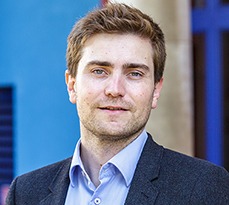Three steps can help people make the most of serendipity to advance their careers and fulfilment, says a new Harvard Business Review article co-authored by Thomas Roulet of Cambridge Judge Business School.
Three key steps – keep an open mind, embrace change, and cast a wide net – can help people cultivate luck and serendipity to advance their careers and fulfilment, says a new Harvard Business Review article co-authored by Thomas Roulet of Cambridge Judge Business School.
“Nothing is ever just a matter of strategy, meticulous planning, and preparation,” says the article. Every opportunity in life has an element of randomness, so we “must sometimes trust that randomness might lead to positive outcomes or unexpected strokes of luck.”
For example, the article says, Thomas wanted to become an investment banker but instead landed a job at a think tank; there, “he met a colleague who was passionate about academia” and that “changed his entire career trajectory” and Thomas ended up in Cambridge.

Keeping an open mind allows people to experiment more broadly with the different components comprising a role; embracing change can open up new possibilities, the way the coronavirus pandemic has created new roles and ways of working; casting a wide net by reaching out to many potential employers “is one way of creating luck or ‘tempting fate’”, the authors say.
“While it’s good to have a clear vision for your future, it should not be definite,” the article concludes. “These three steps are meant to encourage you to explore, forget what you have planned, and be open to what is possible. When you are flexible with your dreams, you can approach your career from a place of unexpectedness, positivity, and trust that everything will, ultimately, fall into place.”
The article in Harvard Business Review – entitled “Your Career Needs a Little Luck. Here’s How to Cultivate It” – is co-authored by Thomas Roulet, Associate Professor in Organisation Theory and Deputy Director of the MBA Programme at Cambridge Judge Business School, and a Fellow at Girton College, Cambridge, and Ben Laker, Professor of Leadership at Henley Business School, University of Reading.


